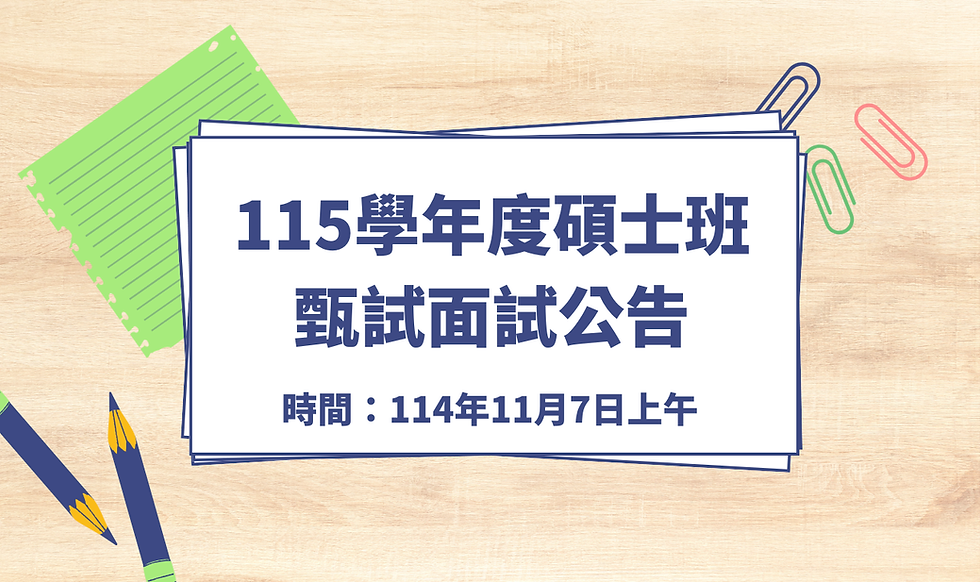Revealing Taiwan’s Role in APEC: Challenges and Advantages
- nccuimpics
- May 3, 2024
- 3 min read
In a captivating guest lecture delivered on April 12, 2024, Dr. Charles T. Chou, Associate Professor at National Tsing Hua University, offered invaluable insights into Taiwan’s engagement with the Asia-Pacific Economic Cooperation (APEC). Drawing from his experience as a former Secretary General of the Chinese Taipei Pacific Economic Cooperation Committee (CTPECC), Dr. Chou provided a unique perspective on Taiwan’s role in this prominent international organization. The lecture, titled “APEC and What it Means to Taiwan,” was hosted as part of the International Organization class at the International Master’s Program in International Communication Studies (IMICS), led by Dr. Chyungly Lee.
▲Fig 1. Dr. Charles T. Chou from National Tsing Hua University is the lecturer of this speech.
Dr. Chou, renowned for his expertise in Economic Integration in the Asia-Pacific and international political economy, initiated the discussion by inviting all participants to share their perspectives on APEC, fostering an interactive environment rich in diverse viewpoints. Notably, one local student attending IMICS expressed high expectations for the speech, seeking insights into both theoretical approaches and practical aspects of Taiwan’s involvement in international organizations.
In addition to introducing APEC with fundamental facts such as its origin and membership, Dr. Chou highlighted key aspects by pointing out, “APEC is probably deliberately designed – just for Hong Kong and Taiwan to participate in without touching the politically sensitive part.” This underscored its unique treatment of member economies as distinct economic entities, allowing regions with political conflicts with Mainland China to have a diplomatic presence within the organization without delving into sensitive political territory. He also elucidated APEC’s role in fostering East-West balance across the Pacific Rim, positioning it as a crucial platform for regional cooperation.
Dr. Chou further elaborated on the profound impact of Taiwan’s membership in APEC, outlining four significant implications. Firstly, despite certain limitations, Taiwan’s participation affords it a crucial diplomatic presence within the organization, signaling its integration into the global economic landscape. Secondly, APEC serves as a vital platform for direct engagement with nations that do not maintain formal diplomatic ties with Taiwan, fostering invaluable face-to-face interactions. Thirdly, Taiwan utilizes its APEC membership as a measure to showcase its readiness and commitment to initiatives such as Regional Economic Integration (REI) and Ecotech, bolstering its reputation as a proactive contributor to regional development. Last but not least, participation in APEC contributes to the continuous enhancement of Taiwanese officials’ skills and expertise across a spectrum of regional cooperation areas, ensuring their adeptness in navigating complex international dynamics.
▲Fig 2 & 3. Attendees included students enrolled in the International Organization course. The diversity in nationality and academic backgrounds (including graduate, undergraduate, and exchange students) unveiled a tapestry of diverse perspectives.
To illustrate the lighter side of APEC engagement, Dr. Chou shared a video that he filmed when he attended APEC as a delegate of Taiwan in 2019, as the ending part of the speech. This heartwarming video captured delegates from member economies enjoying a moment of camaraderie through music and dance during a break at the conference.
The ensuing Q&A session, moderated by Dr. Chyungly Lee, delved into the intricacies of Taiwan’s participation in APEC, shedding light on operational mechanisms and historical context surrounding restrictions imposed on Taiwan’s involvement. Dr. Lee provided additional clarity on the memorandum of understanding signed in 1992, emphasizing the consensus-driven nature of APEC’s decision-making process.
▲Fig 4. Dr. Chyungly Lee, the instructor of the course, is explaining the institutional structure of APEC.
The International Organization course at IMICS aims to equip students with a comprehensive understanding of international organization and global intergovernmental cooperation, empowering them to analyze international affairs with nuance and depth. Dr. Chou’s illuminating lecture undoubtedly serves as a valuable resource for students seeking to explore the dynamics of regional cooperation within the framework of APEC.







Comments